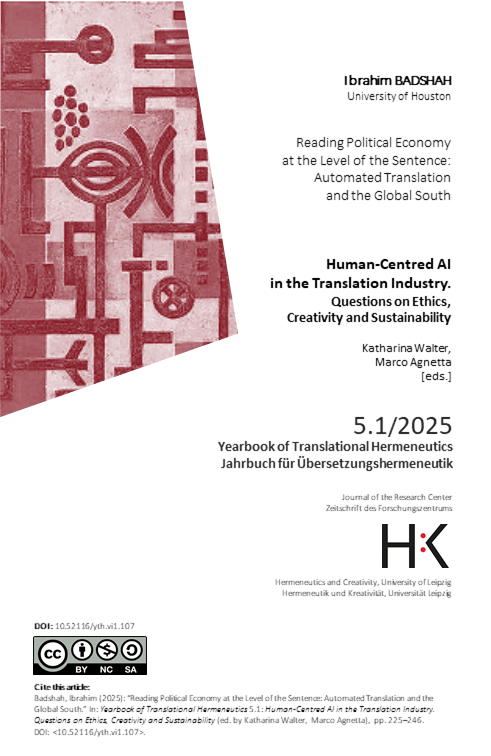Reading Political Economy at the Level of the Sentence: Automated Translation and the Global South
DOI:
https://doi.org/10.52116/yth.vi1.107Abstract
Automated translation is being touted as revolutionizing inter-lingual communication on a global scale. Models such as Google Translate and DeepL are claimed to show a high accuracy rate in translating between certain languages, often to the extent of surpassing human-level performances. However, automated translation between most of the world’s languages, primarily those from the Global South, does not exhibit a consistently high standard accuracy rate. The reason for this disparity is discussed only superficially by the creators of these models. It is either claimed to be the result of the limited online presence of these languages or is written off as a symptom of these languages’ inherent complexities. This article attempts to understand the underlying structures that constitute this inequality in the field of automated translation. In light of world-systems analysis, this article argues that the underperformance of automated translation technology in certain languages is a systematic project of subordination of the Global South. It delineates the chain of processes, starting with European colonialism, that led up to the modern-day invention of automated translation, to examine how this inequality was at the core of global events, although it has always been branded as organic. This article then shows how this new ‘milestone’ of automated translation also becomes a device that operates to propagate the ideologies of the dominant structures of power.

Veröffentlicht
Ausgabe
Rubrik
Lizenz
Copyright (c) 2025 Ibrahim Badshah

Dieses Werk steht unter der Lizenz Creative Commons Namensnennung - Nicht-kommerziell - Weitergabe unter gleichen Bedingungen 4.0 International.
